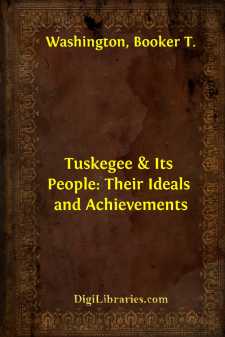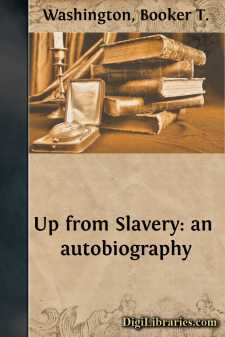Categories
- Antiques & Collectibles 13
- Architecture 36
- Art 48
- Bibles 22
- Biography & Autobiography 813
- Body, Mind & Spirit 142
- Business & Economics 28
- Children's Books 15
- Children's Fiction 12
- Computers 4
- Cooking 94
- Crafts & Hobbies 4
- Drama 346
- Education 46
- Family & Relationships 57
- Fiction 11828
- Games 19
- Gardening 17
- Health & Fitness 34
- History 1377
- House & Home 1
- Humor 147
- Juvenile Fiction 1873
- Juvenile Nonfiction 202
- Language Arts & Disciplines 88
- Law 16
- Literary Collections 686
- Literary Criticism 179
- Mathematics 13
- Medical 41
- Music 40
- Nature 179
- Non-Classifiable 1768
- Performing Arts 7
- Periodicals 1453
- Philosophy 64
- Photography 2
- Poetry 896
- Political Science 203
- Psychology 42
- Reference 154
- Religion 513
- Science 126
- Self-Help 84
- Social Science 81
- Sports & Recreation 34
- Study Aids 3
- Technology & Engineering 59
- Transportation 23
- Travel 463
- True Crime 29
Tuskegee & Its People: Their Ideals and Achievements
Categories:
Description:
Excerpt
PREFACE
In a general way the reading public is fairly well acquainted with the work of the Tuskegee Normal and Industrial Institute, but there is continued demand for definite information as to just what the graduates of that institution are doing with their education.
That inquiry is partly answered by this book. The scope of the Tuskegee Institute work is outlined by the chapters contained in Part I, while those of Part II evidence the fact that the graduates of the school are grappling at first-hand with the conditions that environ the masses of the Negro people.
At the school, in addition to the regular Normal School course of academic work, thirty-six industries are taught the young men and women. These are: Agriculture; Basketry; Blacksmithing; Bee-keeping; Brickmasonry; Plastering; Brick-making; Carpentry; Carriage Trimming; Cooking; Dairying; Architectural, Freehand, and Mechanical Drawing; Dressmaking; Electrical and Steam Engineering; Founding; Harness-making; Housekeeping; Horticulture; Canning; Plain Sewing; Laundering; Machinery; Mattress-making; Millinery; Nurse Training; Painting; Sawmilling; Shoemaking; Printing; Stock-raising; Tailoring; Tinning; and Wheelwrighting.
Since the founding of the institution, July 4, 1881, seven hundred and forty-six graduates have gone out from the institution, while more than six thousand others who were not able to remain and complete the academic course, and thereby secure a diploma, have been influenced for good by it.
The school has sought from the very beginning to make itself of practical value to the Negro people and to the South as well. It has taught those industries that are of the South, the occupations in which our men and women find most ready employment, and unflinchingly has refused to abandon its course; it has sought to influence its young men and women to live unselfish, sacrificing lives; to put into practise the lessons taught on every side that make for practical, helpful every-day living.
In the main those who go out from Tuskegee Institute, (1) follow the industry they have been taught, (2) teach in a public or private school or teach part of the year and farm or labor the rest, (3) follow housekeeping or other domestic service, or (4) enter a profession or the Government service, or become merchants. Among the teachers are many who instruct in farming or some industry; the professional men are largely physicians, and the professional women mostly trained nurses. Dr. Washington, the Principal of the school, makes the unqualified statement: "After diligent investigation, I can not find a dozen former students in idleness. They are in shop, field, schoolroom, home, or the church. They are busy because they have placed themselves in demand by learning to do that which the world wants done, and because they have learned the disgrace of idleness and the sweetness of labor."
No attempt has here been made to represent all of the industries; no attempt has especially been made to confine representation to those who are working at manual labor....




